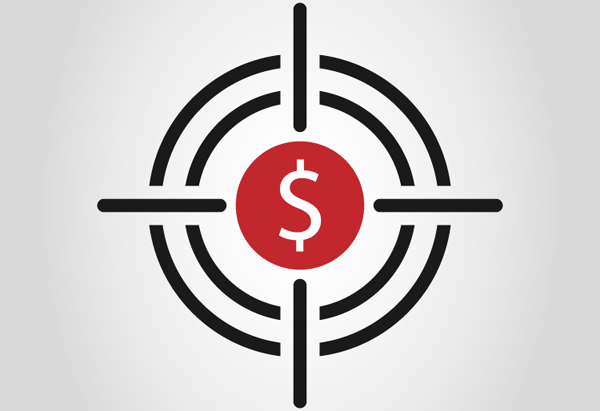How A Business Can Survive & Then Thrive After an Economic Bubble Bursts

:: By Brian Toolan, The Plan Collection ::
Remember Pets.com in 2000? What about Lehman Brothers in 2008? While eight years apart, both of these companies experienced impressive growth during a bubble - the dot.com bubble and the housing bubble, respectively - only to ultimately collapse and fail once those bubbles burst.
Failure isn't the only option. Some companies caught in the downdraft of a market collapse do find paths to great success. Left for dead by public investors after the dot.com bubble, Priceline.com today is a multi-billion dollar corporation. While not every business is destined for such levels of success, plenty of companies do survive and a number of them subsequently thrive beyond expectations. How? We've identified seven common traits among those who succeed.
Manage Debt Wisely

Debt is a core element of any business and potentially one of the greatest tools for fueling growth, when used responsibly. Avoid becoming too reliant on credit for your regular operating costs, even during a strong market, otherwise you could quickly find yourself dealing with unhappy creditors during an economic downturn.
As a general rule, try to balance the use of short-term credit and revolving loans with other forms of more stable capital, including long-term debt which can offer greater financial security. This may help you avoid exorbitant interest rates or penalties, as well as maintain your existing debt long enough to ride out a recession.
Embrace Equity and Consider Equity Partners
Building equity can be expensive and challenging, but it can often be far more beneficial to the long-term success of a business than relying on banks to provide loans - or just yourself. Outside investors who have faith in the business will often still be there when times get tough or when new opportunities arise. An experienced investor can bring years of experience and insight that can do more to help you get through the burst than just access to capital would.
Cash Flow, Cash Flow, Cash Flow
If you find your business struggling due to a burst bubble, you must take a serious look at your cash flow and start making some smart changes. Cut unnecessary and discretionary spending and take this chance to redefine what "core" spending really means. You can often identify projects or spending that is not necessary for your business, which can translate into major long-term savings.
If you conclude that you need to conduct layoffs or close satellite offices or branches, do so as soon as possible instead of dragging it out and sowing doubt among your employees. Don't focus just on expense cutting. Consider alternative ways to improve cash flow, such as negotiating longer payment terms with vendors. Another option is offering a small discount for early payments of invoices, which can help you improve cash flow and reduce outstanding receivables.
Do Day-to-Day Tasks Like a Champion
Simply put, things just cannot stay "business as usual" during a market recession if you want to make it through the slump. Focus on making improvements on the so-called "boring" elements of your business to increase productivity and cut down on redundancies. In good times, most companies do not take a close look at the nuts and bolts of operations, which means there are likely countless areas where you could save money or implement new systems to enhance workflow or revenue. Taking stock like this will also help you understand the immediate and long-term needs of your employees as well as your clients.
Keep a Steely Eye on Marketing
Marketing budgets can get bloated during bubbles because the soaring sales and profits make it appear as if all the efforts are actually paying off. However, you shouldn't rush to slash your marketing programs or spending during a burst until you've done a thorough assessment of each program's performance. Take an honest look at all marketing efforts and look for clear indicators of success or returns on your investments. Shift your focus to more metrics-driven projects, such as conversion rates on pay-per-click advertising, and away from costly tactics where you can't easily measure success, such as trade shows.
Lead with Confidence
While it's important to brace for rough times during the burst phase of any bubble, it's imperative that you don't use a "hunker down" mentality with your employees or clients. This attitude can send the signal that you aren't prepared for what's happening and don't think the company will make it through. Instead, lead with confidence and show everyone that you believe in the company and are actively making changes to guide it through the storm. Actions like taking a salary cut show that you're committed to the success of the business and value the efforts of every employee.
Be Ready to Take Bold Action
In almost any field, new opportunities present themselves all the time if you keep an eye out for them, and sometimes a down market is the ideal time to or acquire a competitor or even branch out into something new. The key is not to overextend your company or push beyond available means but stay vigilant and be prepared to strike when an opportunity presents itself. It might be in the form of a major client looking to leave a competitor who can't adapt to the changing climate or a new niche among customers created as a result of larger economic struggles. Whatever it is, you have to be ready to act quickly and decisively in order to make the most of the opportunity and translate it into a lasting benefit for your company.
As Warren Buffet has said, "be fearful when others are greedy and greedy only when others are fearful." We couldn't agree more. And companies that have steered through a bubble and its collapse only to thrive in often new and innovative ways have taken that to heart.
Brian Toolan is Co-Founder & CEO of TPC Interactive, a Web-based business focused on growing a digital media platform in the home construction, remodeling and design sectors. The company currently operates under The Plan Collection and Houseplans. He is also a partner at Araquot Partners, an investment firm.
Subscribe to Our Newsletter!
Latest in Marketing








